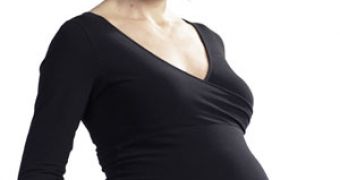In a world of plastics and food additives, there's no wonder we're experiencing a boom in baby allergies. Breastfeeding may help avoid some baby allergies, but scientific researches have not really come with solid proofs that by avoiding certain foods during pregnancy, employing soy formula or nurturing the baby with solid foods beyond six months would work.
The American Academy of Pediatrics has come with a new updated guidance, published in the journal "Pediatrics", debunking previous advice for preventing food allergies and asthma. In August 2000, mothers having a genetic proneness to allergies were advised not to consume cow's milk, eggs, fish, peanuts and tree nuts during the breastfeeding period, along with a schedule for introducing risky foods.
The only thing that surely works is breastfeeding; the rest could be largely discarded:
-There is no solid research showing that women avoiding peanut consume during pregnancy or breastfeeding decrease the likelihood of their child to experience allergies.
-In case of a genetic vulnerability to allergies, exclusive breastfeeding for a minimum of four months can decrease the allergy risk to cow's milk.
-Breastfeeding for a minimum of 3 months is effective against wheezing in infants, but there's no solid proof it can impede asthma later.
-There's no solid proof for the effectiveness of hypoallergenic formulas, when infants are not just breastfed, nor that soy-based formulas can prevent allergies.
-Infants should not consume solid food before the age of 4-6 months, but there is no solid proof that the introduction of aliments like eggs, fish or peanut butter should be delayed in the case of children in order to prevent allergies.
"The evidence for the earlier recommendations was weak and hasn't been strengthened by new research. You never know what's going to come around the corner, but in the past seven years there hasn't been enough evidence to support the old recommendations", said co-author Dr. Scott Sicherer of the Mount Sinai School of Medicine's Jaffe Food Allergy Institute in New York.

 14 DAY TRIAL //
14 DAY TRIAL //